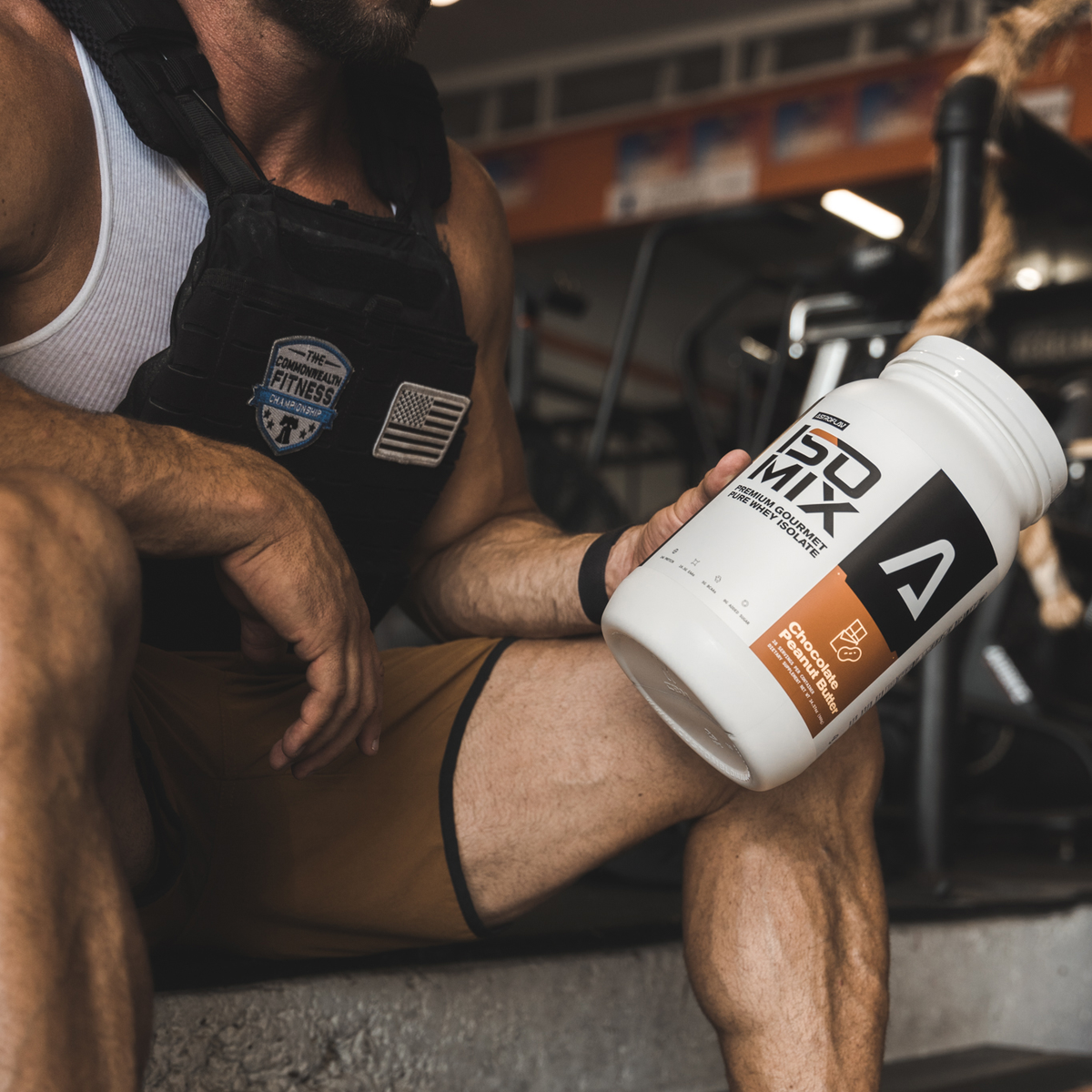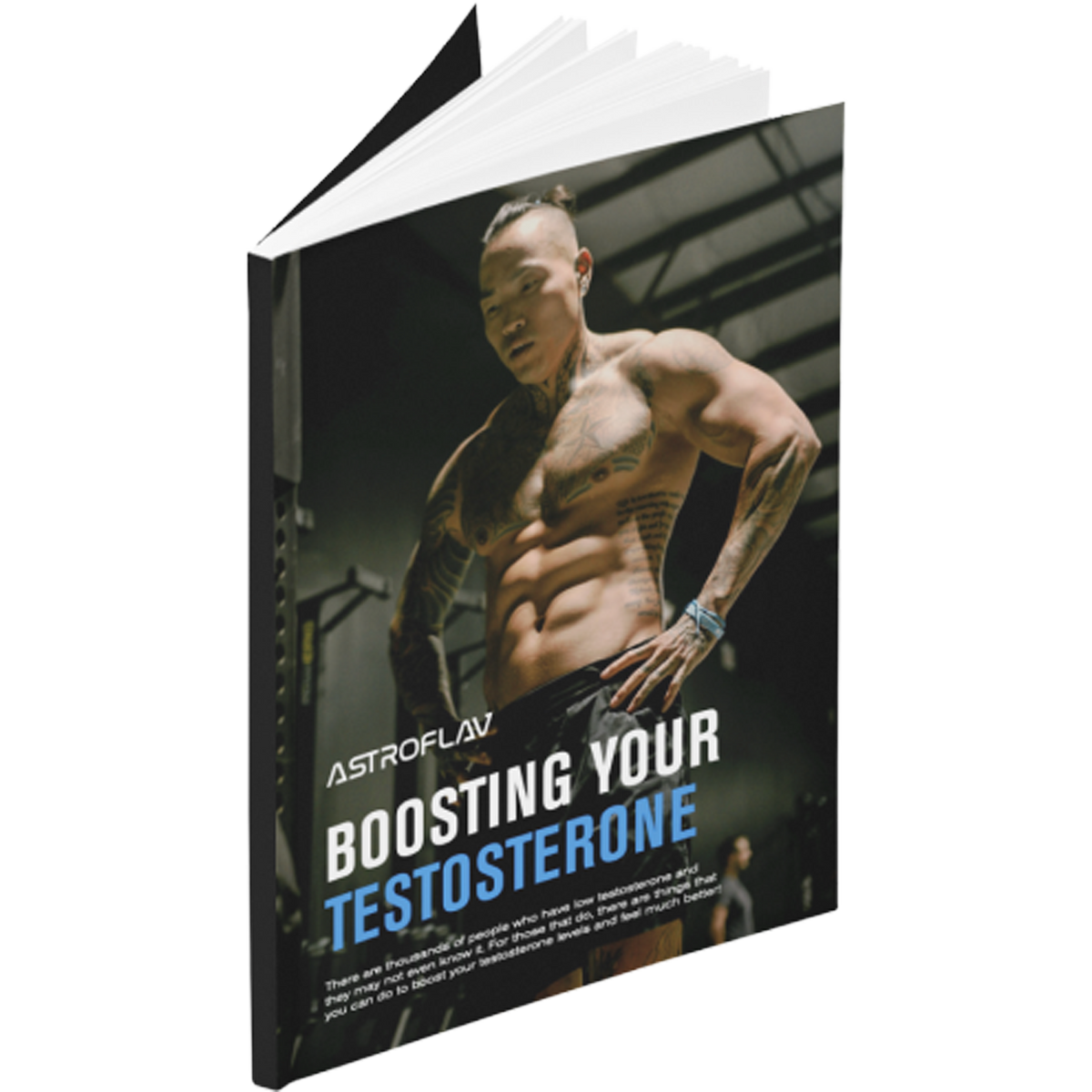What Are Muscles & How Do They Work?
If you are a frequent gym go-er or a big fan of lifting weights, chances are you know what muscles are. However, it's important to look a little deeper into the muscle and get a better understanding of what they do.
Interestingly enough, there are three different types of muscles in your body. This includes the following:
Smooth muscle
Cardiac muscle
Skeletal muscle
Smooth muscles are the type of muscles that you cannot consciously control. These are the muscles are located in the walls of hollow organs such as the liver, pancreas, and intestines.
Cardiac muscles are only found in the muscle tissue found in your heart. This is the only area of the body that has cardiac muscle (hence the name).
Skeletal muscle is the type of muscle found everywhere else on your body. These muscles are the ones that are typically talked about, especially in the gym atmosphere. Skeletal muscles are responsible for contracting muscular movement, sustaining posture and position, maintaining body temperature, and stabilizing joints.
Although each muscle has their focused responsibility, skeletal muscles are the ones that we are going to hone in on in this article to learn how muscle growth works!

Science Behind Muscle Growth
To have better understanding on what the muscle is actually doing when we try to essentially "grow" the muscle, let's break it down a bit.
Muscle tissue is made of 75% water, 20% protein, about 1-10% fat, and 1% glycogen (Listrat, 2016).
There are two processes that muscles undergo:
Muscle protein synthesis
Muscle protein breakdown
Muscle protein synthesis is when your body breaks down amino acids that are in the protein you eat to repair and build new muscle. This actually does not happen while you lift weights, but occurs at rest.
Muscle protein breakdown is when your body breaks down already founded muscle tissue in the body for energy production. In order to produce muscle growth, you have to apply a load of stress greater than what your muscles are adapted to. This causes a breakdown of the muscle tissue, allowing for growth factors such as firing of motor units.
This breakdown eventually causes the cells of the muscle fiber to get bigger and stronger over time.
Along with lifting weights, muscle growth can only happen with proper nutrition. This includes a high-protein diet and well balanced carbohydrates and fats.
This article provides everything you need to know how to build muscle through proper nutrition. Keep scrolling to learn more!

Table of Contents:
1. How to Count Macros for Building Muscle
Counting calories and tracking macros may be intimidating; however, when done with the right approach and a better understanding of how to track your macros and calories, counting your calories for building muscle might not be all that bad!
Macros... What does that mean?
The word macro is short for macronutrient. There are three macronutrients that make up the food category: protein, carbohydrates, and fat. On the flip side, there are micronutrients,which essentially means the nutrients we need in small amounts, like vitamins and minerals.
Carbs
Carbohydrates are one of the primary sources of energy for your body. There are two forms of carbohydrates: simple, high-glycemic carbs and complex, low-glycemic carbs. Simple carbs are faster to digest and broken down more rapidly compared to complex carbs that take longer to digest.
Protein
Protein is not only essential for building muscle, but also for boosting your metabolism and increasing fat burn. Increasing your protein intake will benefit your weight lifting ability and help you put on muscle much faster.
Fat
Fats are essential to your diet as they are useful for protecting and improving the nervous system, proper hormone production, and aid in nutrient absorption. Foods like eggs, fatty fish, nut butter, and olive oil are all great sources of healthy fats.
CLICK HERE, to learn the difference between macro counting and calorie counting!

Calorie Counting vs. Macro Counting
Counting your macros is very customizable as you can set a specific gram-age for each of the macronutrients. Tracking calories looks at the day as a whole where you're not too specific on the macro amount, but try to hit or not go over your overall calorie goal.
A calorie is a unit of energy. Most of every food or drink has calories in it; therefore, when you are configuring your daily calorie intake, it is important to be aware of how many calories are in the foods you are eating.
If you consume more energy than you use (caloric surplus), your body stores the excess towards new muscle growth or fat. If you burn more than you consume (a calorie deficit), you will lose weight overtime.
Focusing back on the calories coming from your macronutrients, remember:
1 gram of carbohydrates is equal to 4 calories
1 gram of protein is equal to 4 calories
1 gram of fat is equal to 9 calories
Want to learn how to calculate your own calories and macros for building muscle? CLICK HERE, to read our latest article goes over step-by-step on how to establish your calories and macros!
2. How Much Protein Do You Need to Build Muscle?
Did you know that there are many ways to increase your protein intake other than consuming an absurd amount of chicken and/or beef? Consuming enough protein is not only essential for building muscle, but also for muscle recovery.
So how much protein do you actually need to build muscle and what are easy ways to increase your daily protein intake? Good news! Our latest article goes over everything you need to know about protein, how much you need, and the best protein sources to seek out when looking to increase your protein. CLICK HERE, to read more!
What is Protein?
Protein is an essential macronutrient that your body needs to grow and repair tissue and muscle cells. Proteins are found in every area of the body including our bones, organs, hair, skin, and nails.
Protein contains essential and non-essential amino acids (the building blocks for all our proteins in the body). Essential amino acids are ones that our body cannot make on its' own; therefore, these amino acids must come from the food we eat.
In order to build muscle, it's important to make sure you are eating complete protein sources. Without having these complete proteins, it will be a lot more difficult for you to grow muscle efficiently. To learn more about complete protein sources and the best protein supplements to include in your diet, CLICK HERE.
Tips for Getting in More Protein:
A high protein diet can be made easy with small changes to your diet. Adding in additional amounts of protein to each meal is an easy way to increase your protein as well as swapping extra carbs for more protein. Below is a list of easy ways to eat more protein:
1. Increase amount of protein per meal - Add in an extra ounce of few extra grams of chicken or meat to your meal. This will not only keep you satiated longer, but also increase your protein intake for the entire day.
2. Replace sugary carbs for high protein food sources - Swap the cereal with a couple of eggs and a healthy protein smoothie. You will get additional protein from the eggs and protein powder, while also incorporating healthy carbohydrates from the fruit in your smoothie!
3. Snack on high protein snacks - Cheese, jerky, Greek yogurt, hard boiled eggs, and protein bars are all great high-protein snacks. High protein snacks are great for on-the-go or if you have a busy work day!
4. Opt for Greek yogurt - Greek yogurt contains additional protein opposed to regular yogurt. Swap the Yoplait with Oikos Greek yogurt! You can add sweetener, berries, and your favorite nuts as toppings!
5. Add nuts & nut butters to your diet - Nuts provide a good amount of plant based protein. Top your yogurt with crushed almonds or dip your apples in peanut butter!
6. Add a protein shake into your day - Have a big shake for a meal replacer or a small shake for a snack. This will help increase your protein by over 30 grams!
3. What is Collagen & What Does it Do?
You may have heard that collagen is one of the most beneficial supplement for strengthening hair, skin, and nails... But what if we told you that collagen works wonders for your enhancing muscle mass?
Collagen powder, collagen peptides, and hydrolyzed collagen are all sources of collagen that emanate benefits to different systems of body. This article goes over what exactly collagen is, the different types of collagen, and the many benefits that collagen provides to building muscle mass. Keep scrolling to learn more!
What is Collagen?
Collagen is the most abundant protein in the human body; it makes up 35% of the total protein content in your body. Collagen is the primary structural protein found in connective tissue, tendons, ligaments, muscles, bones, cartilage, and skin.
There are 28 known types of collagen in the body — Type I collagen accounts for more than 90% of collagen in the human body.
Collagen supplements can be bought in forms of powder, capsules, and liquid. It's an easy supplement to add to your coffee or daily vitamin routine!
Benefits of Collagen:
For those active in the gym or heavily into bodybuilding, collagen is important for strengthening ligaments and joints; thus reducing likelihood of injury.
It is often questioned whether or not collagen supplements actually work and if you can really see fitness performance improvements. Below is a list of potential benefits that collagen may give!
Improve appearance of the skin and hair: One of the most popular uses of a collagen supplement is to support skin health. Research suggests that skin health and appearance can be improved by consistently taking a collagen supplement. Hydrolyzed collagen in specific, has numerous of studies showing that skin hydration and elasticity has may be improved when taking.
May improve joint health: Collagen is an important component of cartilage (the tissue in between bones that cushions and supports joints). It may help improve joint function and joint pain by strengthening and providing more structure to the area. Studies have shown that supplementing with collagen can reduce joint pain and osteoarthritis symptoms (Clark, et. al., 2008).
May strengthen bones: When performing weight-bearing activities such as lifting weights, the pressure is generated on your bones and joints. Supplementing with collagen not only provides strength to your bones, but is also useful for avoiding injury.
Helps in muscle repairing and restoration: Regeneration of muscle fibers and connective tissue are the two main factors that lead to the healing of torn muscles (MuscleBlaze, 2019). Since collagen has a high amount of amino acids, consuming this protein after a workout helps to restore the lost protein in the muscles from the breakdown of exercise.
4. Signs You're Not Getting Enough Protein
Did you know that your body will present itself with some unpleasant symptoms when it's not getting enough protein? No matter what type of training you are engaging in, having enough protein is essential for fueling those workouts! Along with providing sustained energy, protein also aids in keeping our bellies satisfied and helps regulate blood sugar.
Correspondingly, not enough protein in your diet will give you some unwanted symptoms.
For more information on how to increase your protein intake, CLICK HERE!
6 Sign You're Not Getting Enough Protein:
Slow recovery from injuries
Increased hunger & cravings
Brittle hair, skin, and nails
Weakness & fatigue
Fluid retention/swelling
Poor immune system
5 ways to increase your protein intake:
If you're struggling to increase your overall protein intake, we have your back! Below are a few ways in which you can make a few easy and quick changes to make sure your daily protein intake is where it needs to be!
Make protein the main source of every meal/snack.
Carry high-protein snacks on the go.
Swap pasta for quinoa or chickpea pasta.
Increase protein portion sizes.
Add protein powder to your coffee & smoothies.

5. AstroFlav's IsoMix | Whey Protein Isolate
Isomix is AstroFlav’s whey protein isolate that comes in 6+ amazing flavors to satisfy your inner child while helping you hit your protein intake. Using the most premium blend of ingredients, our IsoMix is formulated to have minimal ingredients, reduced carbs, and high-protein all in one serving!
Benefits of IsoMix:
Minimal sugar and carbohydrates
Ideal protein for any low-carb diet
Easy mixing – smooth, no clumps
Avoid cravings from unhealthy treats
Out of this world flavor and best tasting Isolate available!
Suggested use:
Quick and easy two step mixing!
Pour 8-10 oz of your preferred beverage.
Add 1 serving of IsoMix to your shaker cup. (Mixes great even with a spoon)
Related Articles
At AstroFlav, we want the best for our customers. It is our goal to help everyone achieve their fitness goals and steer them in the right direction with trust-worthy advice AND trust-worthy supplements!
Join our family for new videos, discount codes, and more!













